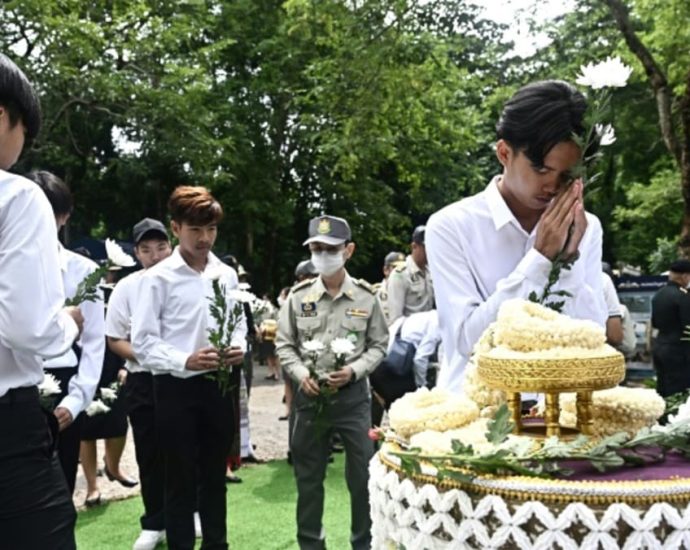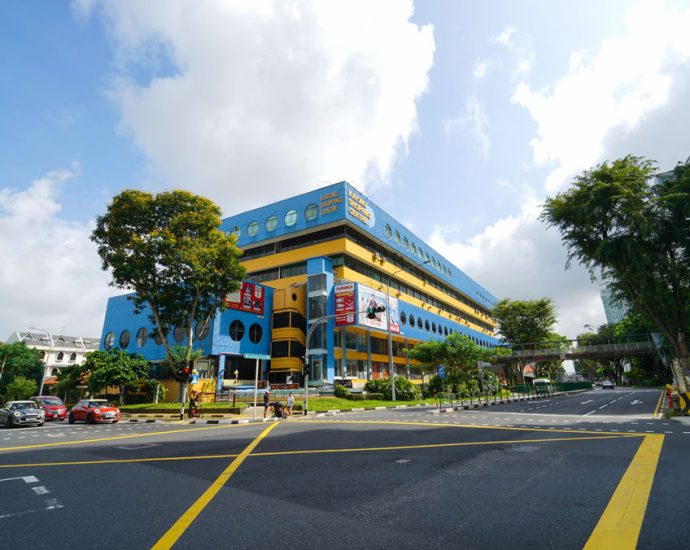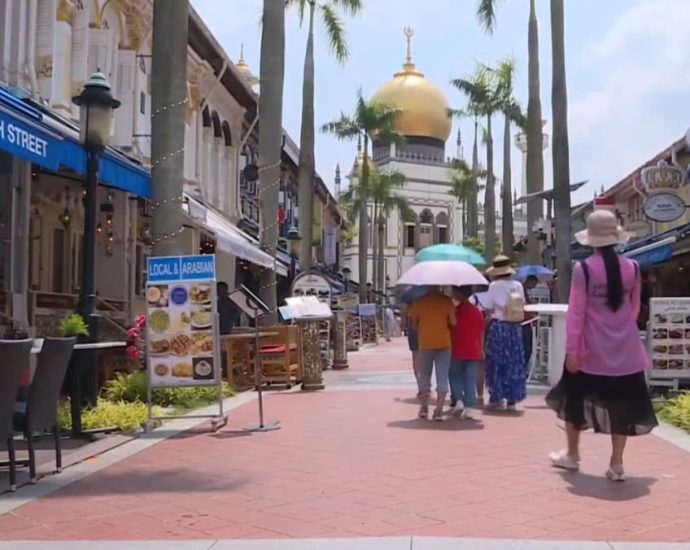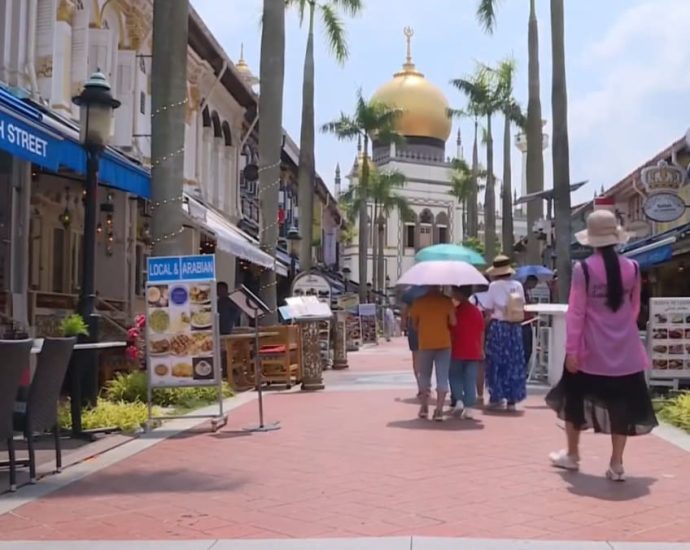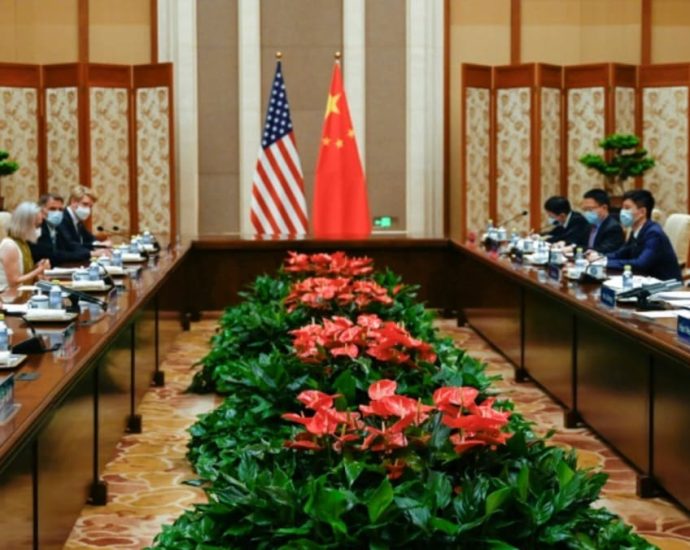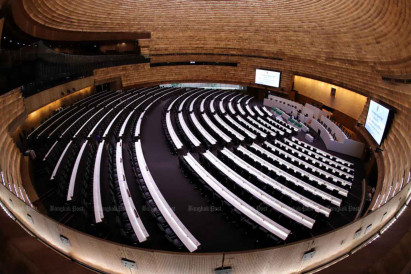Who should pay developing worldâs climate change bill?
Here are three inconvenient truths. First, the world cannot fight climate change without developing countries. Second, developing countries will need massive amounts of investment for climate financing — and much of these required savings will need to be imported.
Third, the governments of developing countries won’t allow the import of foreign savings if they worry that a backlash from international financial markets might cause financial instability.
The combination of these three truths has produced a predicament that the world has not yet grappled with – that action on climate change is inextricably linked to the financial stability of developing countries, both perceived and actual.
This is a big problem. Estimates of how much investment will be required by developing countries to fight climate change over the coming decades are in the tens of trillions of dollars.
But developing countries, particularly those in East Asia, lack sufficient domestic savings given the massive amounts of investment already needed to reduce poverty and develop their economies, meaning they typically run current account deficits — where a country imports savings from overseas.
These current account deficits can often be a source of financial volatility. When an international shock occurs, countries with a current account deficit greater than 3% of GDP tend to be punished by the market with capital outflows, hurting the financial sector and the exchange rate.
The last few years have been a case in point. As US interest rates have risen, capital has been sharply withdrawn from developing countries and shifted to the United States to enjoy higher returns.
This has caused a sudden tightening of financial conditions in developing countries and pushed down their exchange rates against the US dollar, making their foreign-denominated debts larger and, in some instances like Bangladesh, requiring IMF assistance. The same turbulence was experienced during the taper tantrum in 2013 and the global financial crisis in 2008.

Recent estimates suggest that if developing countries were to import the necessary foreign savings to fight climate change, their current account deficits could increase substantially. This is a terrifying thought for developing country finance ministers who have become hypersensitive to growing current account deficits.
The result is that policymakers limit financial inflows using monetary policy and macroprudential tools to keep the current account deficit in check, constraining economic growth — and in the process, constraining the sustainable investment needed to fight climate change.
To be sure, recent international turbulence has revealed that developing countries, particularly in Asia, have come a long way in bolstering the resilience of their financial systems.
Decades of reform have strengthened risk monitoring frameworks, hedged risks, liberalized exchange rates, deepened financial systems, strengthened supervisory mechanisms and improved resolution processes for troubled banks and financial institutions.
Not all developing countries face the same challenges, and not all developing countries have the same contribution to climate risks. And there is only so much developing countries can do. While recent crises have revealed how far developing countries have come, they’ve also shown their continued susceptibility to global shocks.
If developing countries are to import the foreign savings needed to fight climate change, the rich world and the institutions it controls will need to work with them to reduce financial instability.
Luckily, there are practical things that can be done. At the global level, efforts to reform the lending conditions of the International Monetary Fund need to be continued, to reduce the stigma which stops developing countries from seeking assistance.
Development banks, like the Asian Development Bank at the regional level and the World Bank at the global level, can provide finance directly through concessional lending and grants to ease the financing burdens of developing countries.
An emerging deal between China and the World Bank will likely see China agree to reschedule some of its loans to developing countries where, in return, the World Bank will increase its lending to developing countries, including for climate action.
The COP27 agreement to loan Indonesia US$20 billion will also help. But given that the size of the green investment required dwarfs the resources of these institutions, development banks will need to be more innovative and use their balance sheets to help backstop the liquidity of developing country governments as they undertake sustainable investments.

Bilaterally, rich world central banks need to use currency swap lines and standby loans to plug the gaps in the safety net and ensure that all developing countries have access to foreign exchange in times of need.
And international institutions need to support developing countries by implementing the tools and mechanisms that the countries need domestically to manage risks from capital inflows.
These tools and mechanisms can also help them to price carbon domestically as part of a global approach and implement domestic regulatory reforms to fight climate change, including the elimination of fossil fuel subsidies.
In a nutshell, climate change is a global challenge that will be won or lost in developing countries. All countries have a shared incentive to ensure the necessary investments are undertaken in developing countries — and that means all countries have a shared incentive to bolster the financial stability of developing countries.
If the last two years have shown us anything, it’s that we have a long way to go.
M Chatib Basri teaches in the Economics Department at the University of Indonesia and was formerly Indonesia’s Minister of Finance.
Adam Triggs is Partner at Mandala and Non-Resident Fellow at the Brookings Institution and the Crawford School of Public Policy, The Australian National University.
This article was originally published by East Asia Forum and is republished under a Creative Commons license.
Japan prosecutors to pursue retrial of man who spent decades on death row
TOKYO: Prosecutors in Japan will pursue the retrial of an 87-year-old former boxer – considered the world’s longest-serving death row inmate – nearly six decades after he was convicted of murder, an official said on Monday (Jul 10). The decision comes after Tokyo’s High Court in March ordered the retrialContinue Reading
Extortion suspected in Germanâs disappearance
Two foreigners questioned, refuse to give statements

CHON BURI: Police suspect extortion was the motive in the disappearance of a wealthy German businessman in Pattaya last week.
They have identified a woman believed to have pointed him out to his abductors, and the recipient of money paid by the missing property broker, 62-year-old Hans Peter Ralter Mack, Pol Gen Surachate Hakparn, deputy police chief, said on Monday.
He said police would find Mr Mack, whether he was alive or dead.
Investigators were compiling their case to apply for court warrants and he expected an arrest in the near future.
“The case concerns assets. The offender seemed to know that Mr Mack had assets. Detectives must find out if he knew Mr Mack personally,” the deputy national police chief said.
Police would also look into the business activities of other people in the case, he said.
The missing man’s silver Mercedes-Benz E350 coupe was found by police on Sunday morning in the CC Condominium parking lot on Khao Noi road in tambon Nong Prue.
Pol Gen Surachate confirmed reports that a chemical cleanser had been used inside the vehicle in an attempt to destroy evidence.
Two foreigners were called in for questioning at Nong Prue police station in Bang Lamung district on Sunday night in connection with the case. Their names and nationality were not disclosed. They were accompanied by their lawyers.
Pol Col Tawee Kudthalaeng, Nong Prue police chief, said the two declined to give statements, saying their lawyers would represent them in any legal proceedings.
A woman suspected of involvement in Mr Mack’s disappearance was earlier called in for questioning. She also declined to cooperate, saying her lawyer would act on her behalf.
Later on Sunday night, Pol Maj Gen Theerachai Chamnanmor, chief investigator of Provincial Police Region 2, led immigration and tourist police, with a court warrant, to search house 21/302 in Chok Chai Garden 2 housing estate at Moo 10 in tambon Nong Prue. The house belonged to one of the suspects. Police did not find anything suspicious in the house.
Sources said investigators had detected suspicious financial transactions totalling about 2 million baht which might be linked to the man’s disappearance.
Mr Mack, 62, has not been seen since July 4. His Thai wife, Piriya Boonmark, said he left their Swiss Paradise housing estate home in Pattaya in his Mercedes Benz to meet a foreign property broker he had recently met.
The family filed a missing person complaint with police on July 5 and later offered a reward of 3 million baht for information on Mr Mack’s whereabouts, and 100,000 baht on his car.

Hans Peter Mack, the missing 62-year-old German businessman. (Photo: Chaiyot Pupattanapong)
‘We must not forget’: Thailand marks cave rescue anniversary
Despite the odds, the boys and their coach all made it out alive. Adul Sam-on, one of the footballers who shot to fame after he thanked the divers who found them in English, was granted Thai nationality following the rescue, as were his coach and two team-mates. Speaking on Monday,Continue Reading
Two dead after tour bus from Singapore collides with car along Malaysia expressway

SEREMBAN: Two people were killed following an accident involving a tourist bus and a car on the North-South Expressway in Malaysia during the early hours of Monday (Jul 10).
Rescue authorities identified the fatalities as the bus driver and an Indonesian woman who was a passenger. Five others were seriously injured.
Nilai district deputy police chief Mat Ghani Lateh said that the bus had been ferrying 19 passengers.
Fourteen of them were foreign nationals – four Indonesians, three Singaporeans, two Canadians, three from the Philippines and one each from China and Spain.
Preliminary investigations found that the bus, owned by La Holidays Travel & Tours, was travelling from Singapore to Kuala Lumpur before rescue authorities were alerted to the incident at about 5am.
“The bus is suspected of hitting a bridge pillar on the right side of the expressway, before swerving to the left and hitting a Proton Wira car, which was in the left lane, and crashed into the left shoulder of the road,” he said.
Katong Shopping Centre relaunches for en bloc sale, price stays at S$638 million
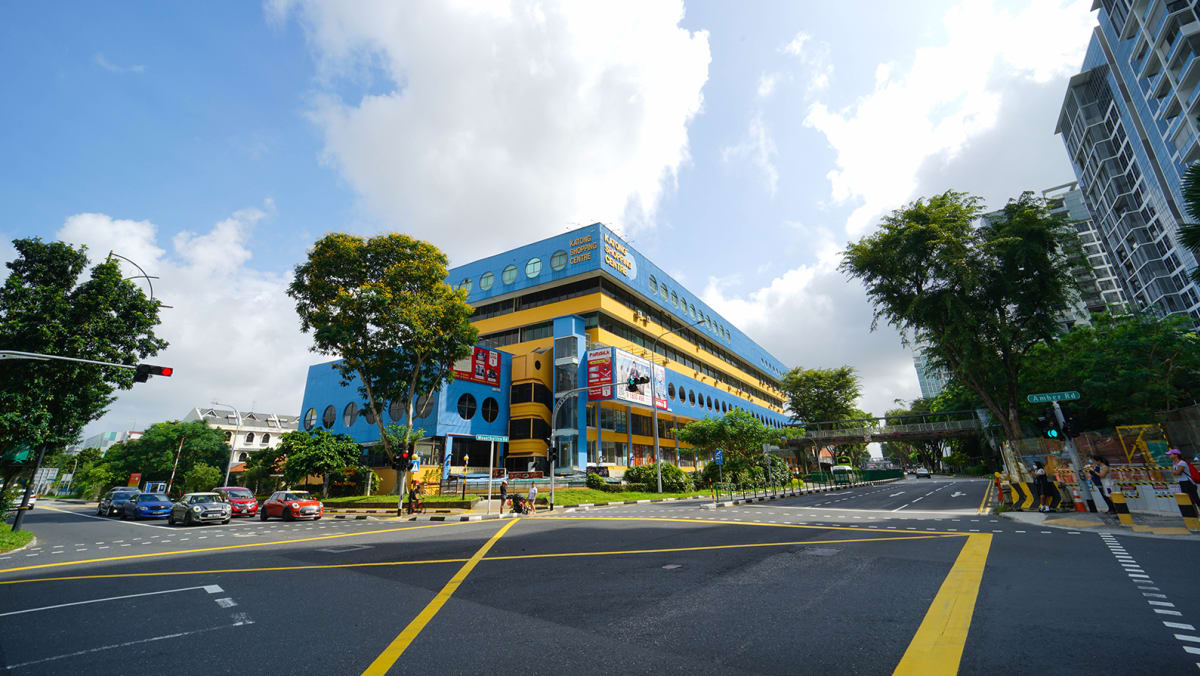
SINGAPORE: Katong Shopping Centre has made another attempt at collective sale, at an indicative price of S$638 million (US$473 million), said real estate firm Edmund Tie in a news release on Monday (Jul 10).
The freehold property in District 15 is located on a corner land plot of 86,924 sq ft, facing both Mountbatten Road and Haig Road.
It was previously put up for collective sale in April for the same price. At the time, Edmund Tie said that was the third en bloc attempt by Katong Shopping Centre.
On the previous two occasions in 2016 and 2017 – both handled by Cushman & Wakefield – the reserve price was set at S$630 million.
The development currently comprises a seven-storey podium block and a five-storey annex block, accommodating a total of 425 strata shop and office units as well as a privately held carpark. The total gross floor area of the development is approximately 280,000 sq ft, reflecting a gross plot ratio of 3.223.
Under Master Plan 2019, Katong Shopping Centre is zoned for commercial and residential use at a gross plot ratio 3.0. The site can be redeveloped into a landmark integrated development at its existing plot ratio of 3.223, with the option of converting the residential component into serviced apartments, subject to authorities’ approval.
The indicative price of S$638 million works out to S$2,277 per sq ft per plot ratio (psf ppr) based on its existing gross floor area.
Edmund Tie’s head of investment advisory Swee Shou Fern said: “Katong Shopping Centre offers investors a rarely available sizeable site with the coveted freehold tenure for a mixed-use development; what’s more in the popular and well-established East Coast vicinity.
Based on an average unit size of 100 sq m (or approximately 1,076 sq ft), the new development can accommodate about 156 residential apartments, she said. The retail component can feature up to approximately 112,000 sq ft in gross floor area.
Visitors to Kampong Glam can expect more cultural activities, improved accessibility over the next five years

The upcoming developments are part of the blueprint by the Kampong Gelam Alliance, a group of residents, cultural institutions and businesses in the area.
The plan follows a two-month public consultation on the future of the precinct and was done in consultation with the URA.
Kampong Glam was famous for its textiles in the seventies. Today, it is still home to businesses selling fabrics and traditional patterns. It is also known for selling products used for religious activities like non-alcoholic perfumes. Locals and tourists also visit to get a taste of traditional food.
ENSURING BUSINESSES REMAIN VIABLE
The shops in the precinct today are a mix of three-generation businesses and start-ups and pop-ups which offer services, food and drinks and shopping, said Mr Zaki Ma’arof, a member of the alliance.
Among the plans to keep the businesses viable is an apprenticeship scheme, where younger entrepreneurs will be paired with veteran businesses to learn traditional trades that include textiles, handmade perfumes and Persian crafts.
The initiative to refresh Kampong Glam’s offerings while keeping it anchored in its roots was welcomed by businesses in the area.
“I would like to see more batik shops, I would like to see more Kebaya shops, I want to see more Kurung shops or more food and beverage in restaurants, the local food, local delights,” said Ms Ratianah, owner of a kebaya shop in her name.
Visitors to Kampong Gelam can expect more cultural activities, improved accessibility over the next five years

The upcoming developments are part of the blueprint by the Kampong Gelam Alliance, a group of residents, cultural institutions and businesses in the area.
The plan follows a two-month public consultation on the future of the precinct and was done in consultation with the URA.
Kampong Gelam was famous for its textiles in the seventies. Today, it is still home to businesses selling fabrics and traditional patterns. It is also known for selling products used for religious activities like non-alcoholic perfumes. Locals and tourists also visit to get a taste of traditional food.
ENSURING BUSINESSES REMAIN VIABLE
The shops in the precinct today are a mix of three-generation businesses and start-ups and pop-ups which offer services, food and drinks and shopping, said Mr Zaki Ma’arof, a member of the alliance.
Among the plans to keep the businesses viable is an apprenticeship scheme, where younger entrepreneurs will be paired with veteran businesses to learn traditional trades that include textiles, handmade perfumes and Persian crafts.
The initiative to refresh Kampong Gelam’s offerings while keeping it anchored in its roots was welcomed by businesses in the area.
“I would like to see more batik shops, I would like to see more Kebaya shops, I want to see more Kurung shops or more food and beverage in restaurants, the local food, local delights,” said Ms Ratianah, owner of a kebaya shop in her name.
Tech rally lifts Hong Kong but Asia rally stutters on China data
HONG KONG: Hong Kong rose on Monday (Jul 10) in hopes that Beijing has ended its long-running crackdown on the tech sector, but an early Asia-wide rally was staunched by inflation data showing further weakness in China’s economy. After a years-long probe, Ant Group was hit with a near US$1Continue Reading
Protest site ready ahead of ‘problematic’ vote for PM

An area near the parliament has been prepared for demonstrators when the House and Senate meet on Thursday to vote on who should be the new prime minister, a vote some senators warn could be problematic.
House Speaker Wan Muhamad Noor Matha said on Monday that vacant land owned by the Bangkok Metropolitan Administration opposite Thahan Road would be available for demonstrators when the parliament convenes in joint sitting at 9.30am on Thursday.
Demonstrators should not gather in front of the parliament itself because there was construction work going on which could pose a danger to them, Mr Wan said.
He had coordinated with City Hall in arranging the nearby area be available. It had a clear view of the parliament and there would be tents and toilets available for people there.
Mr Wan asked that demonstrators help maintain order. Thursday’s meeting was a significant event and the parliament an important place.
Bangkok Governor Chadchart Sittipunt said on Monday the 5-rai area was in the grounds of a City Hall complex and could accommodate about 600 people.
Eight coalition allies plan to nominate Pita Limjaroenrat, leader of the election-winning Move Forward Party, as the next prime minister at Thursday’s meeting. However, Mr Pita is facing complaints about his eligibility for political office over an inherited shareholding in iTV Plc that he managed as executor of his father’s estate.
The constitution prohibits a shareholder of a media organization from running in a general election. Anyone who does so knowing they were not qualified is liable to penalities including imprisonment, fines and suspension of electoral rights.
Senator Direkrit Jenkhrongtham said that unless there is a clear ruling on Mr Pita’s eligibility ahead of the meeting, there would be a big debate.
He warned parliamentarians they could be held in violation of the constitution if they vote for Mr Pita while being aware his eligibility was in question.
Mr Direkrit said unless the prime ministerial vote was postponed, many senators may abstain.
Senator Seree Suwannapanon said MPs of the eight coalition allies could be seen as violating the constitution if they vote for Mr Pita, and their parties may risk legal penalties including disbandment.
However, Senator Ampol Chinawatana said he would vote for a prime ministerial candidate from the political parties that had a majority in the House, so that the new government would also have majority support.
Appearing to support Mr Pita, Senator Ampol said the people’s choice must be respected, otherwise there was no point in having a general election.
The constitution requires the new prime minister be supported by a majority of the combined vote of the 500 members of the House of Representatives and the 250 senators – a minimum 376 votes.




